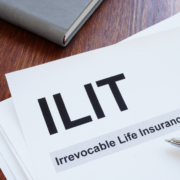What Kind of Evidence Do I Need for a TPO Hearing?
You don’t plan to end up in court asking for protection.
However, when someone crosses a line with threats, violence, or intimidation, you can’t afford to wait and hope things calm down. A Temporary Protective Order (TPO) can give you space, safety, and peace of mind while the courts sort things out.
TPOs are more common than many people think. In 2024 alone, over 17,600 emergency TPOs were issued in the state of Georgia. Approximately 41% of these were extended into longer-term TPOs (lasting up to three years).
If you’re getting ready for a TPO court hearing, you might wonder: What do I actually need to prove my case?
This question is asked all the time. People show up with a stack of screenshots, a few photos, maybe a text or two. Then, they panic when the judge starts asking questions.
Here’s the truth: evidence isn’t only paperwork. It’s your story, told clearly and backed up by proof. The right evidence helps the court see what really happened and why protection matters right now.
In this article, we’ll walk you through:
- What to expect at a Temporary Protective Order hearing in Georgia
- The most effective types of evidence judges look for
- How to organize and present your proof so your story comes across clearly
- How legal representation can help
- What happens after the hearing, including how to handle violations
Getting this right can make a real difference, not just legally, but for your safety.
What Is a Temporary Protective Order Hearing?
A Temporary Protective Order hearing (commonly called a TPO hearing) isn’t like most court appearances. It’s fast, serious, and focused entirely on safety.
Georgia law gives people the right to ask for protection when someone’s behavior becomes threatening, violent, or harassing. The goal is simple: stop the harm before it gets worse.
How a TPO Hearing Works
After someone files for a TPO, a judge can issue an immediate temporary order — sometimes the same day. This is usually called an Ex parte order since the judge has only heard one side of the story. This first order is short-term. It creates space and safety until a full hearing can be held, usually within 30 days.
At the next hearing, both sides have the chance to tell their story. The person asking for protection (the Petitioner) presents their evidence first. Then, the other party (the Respondent) can respond and show their own evidence.
The judge reviews everything (statements, photos, messages, witnesses) and decides whether to extend the protection into a longer order.
These hearings move quickly. Most last less than an hour. Judges want clear, organized proof and calm explanations, not emotional outbursts or long stories. That’s why the evidence you bring matters so much. It helps your case speak for itself.
Types of Situations Addressed
TPO hearings cover more than just domestic violence between spouses or partners. They also apply to situations like:
- Threats or harassment from a co-parent or ex
- Stalking by an acquaintance, neighbor, or coworker
- Physical or emotional abuse involving roommates or relatives
- Violence or intimidation between people who share a child but not a home
In short, if someone’s actions have made you feel unsafe, a TPO hearing is your chance to ask the court for protection and set firm boundaries backed by law.
Types of Evidence for a TPO Hearing
Evidence is what turns your experience into something the court can act on. This isn’t being dramatic or emotional. This shows what happened in a way the judge can see, read, or hear for themselves.
Every case looks a little different, but the strongest TPO hearings usually include a mix of physical, digital, and written proof that supports your story from multiple angles.
Physical Evidence
Physical evidence is anything you can touch or see that points to an incident. That could include:
- Torn or damaged clothing
- Broken cell phones or household items
- Photos of bruises, cuts, or other injuries
- Medical reports showing treatment after an altercation
When possible, include date-stamped photos or medical records. They help build a clear timeline and connect your evidence directly to the incident.
Digital Communications
Hold on to texts, emails, social media messages, and voicemails. Digital proof often tells the story better than anything else. Judges frequently look for:
- Threatening or harassing texts
- Repeated contact after being told to stop
- Social media posts showing anger, threats, or stalking behavior
Keep messages complete, with dates visible and full conversations included. Avoid editing or cropping. A full picture is always more credible than a snippet.
Written Documentation
Written proof adds consistency and credibility. Diaries, notes, and incident logs show ongoing behavior and help prove a pattern. Try to include:
- Dated entries describing specific events
- Notes on how you felt or what actions were taken
- Have any witnesses present at the time of the incident in court with you
Even short, consistent notes written soon after each event can carry a lot of weight in court.
Photos, Videos, and Recordings
Visual proof can be powerful, sometimes more than words. Photos of injuries, damage, or screenshots of threatening posts give judges something tangible to look at.
Under Georgia law, recordings are legal if at least one person in the conversation consents (which can include you). But avoid secretly recording someone else’s private conversations if you’re not involved. That can make the evidence unusable.
Witness Testimony and Support Statements
Not every case rests on physical proof. Sometimes, the most convincing evidence comes from the people who saw or heard what happened.
Witnesses can help confirm your story, fill in missing details, and give the judge another perspective on the events in question.
Who Can Be a Witness
A witness can be anyone with firsthand knowledge of the situation. That might include:
- Friends or relatives who saw bruises or heard arguments
- Neighbors who witnessed an incident or overheard threats
- Coworkers who noticed changes in behavior or saw visible injuries
- Medical staff, counselors, or social workers involved after the fact
In Georgia courts, judges tend to value witnesses who are calm, consistent, and specific. Emotional or biased testimony can sometimes do more harm than good, so it helps to choose witnesses who can focus on facts rather than feelings.
How Witnesses Present Statements
Witnesses must appear in person for most TPO hearings.
When giving testimony, witnesses should:
- Stick to what they personally observed
- Avoid speculation or repeating what others said
- Speak clearly and respectfully to the judge
Simple, direct testimony often carries the most weight. The goal isn’t to tell a dramatic story, but to confirm what happened from another reliable point of view.
Presenting Evidence in Georgia Courts
Having strong evidence is one thing. Presenting it well is another.
A judge decides dozens of TPO cases each week, so the clearer and more organized your proof, the better your story comes across. Think of it like putting puzzle pieces in the right order. The full picture only makes sense when everything is easy to follow.
Getting Organized Before the Hearing
Start by gathering every piece of evidence you plan to show.
Put printed documents, photos, and screenshots in a folder or binder. Label each one with the date and a short note like “Text from 5/12” or “Photo of damaged door.”
Make three copies of everything: one for the judge, one for the other party, and one for yourself. If you’re using digital evidence, save files in an easy-to-access format, like a clearly labeled folder on a USB drive.
When it’s time to present, walk the judge through your materials in a calm, logical way. Avoid jumping around or bringing up unrelated details.
The goal is to let your evidence tell the story clearly, piece by piece.
What’s Allowed in Court
Georgia courts only accept lawful evidence. Anything obtained illegally (like a secretly recorded conversation between other people ) can be thrown out.
On the other hand, if you recorded a conversation you were part of, that’s typically allowed under Georgia’s one-party consent rule.
Other general courtroom rules matter, too. Dress respectfully, silence your phone, and speak directly to the judge rather than to the other party.
Judges often notice how both sides handle themselves. Organization, respect, and composure can go a long way in how your evidence is received.
What Happens After a TPO Hearing
Once both sides have shared their evidence and testimony, the judge will make a decision. If the court finds enough proof that abuse, threats, or harassment occurred, or that it’s likely to continue, the judge will issue a final protection order A final TPO can last up to a year and may include specific conditions like:
- No contact of any kind (in person, by phone, text messages, or social media)
- Orders to stay away from your home, work, or children’s school
- Temporary custody or visitation arrangements
- Directions for property exchanges or safe communication about shared children
Every order is unique. The judge customizes it to fit the situation, focusing on safety above all else.
Enforcing or Changing a TPO
A protective order is legally enforceable. If it’s violated, the police can arrest the offender, and prosecutors can file criminal charges and police reports.
Keep a copy of your TPO with you and share it with your local police department or your child’s school if needed.
If circumstances change, like new threats, divorce, reconciliation, or a move to another county, you can ask the district court to modify or extend the order. Georgia courts take these updates seriously, especially when safety is still at risk.
When a Violation Happens
If the other person breaks the order, report it right away.
Call local law enforcement and document what happened. Save any general information like new messages, take screenshots, and write down dates and times.
For Atlanta-area residents, law enforcement in Fulton, DeKalb, Cobb, and Clayton counties all have domestic violence units familiar with enforcing TPOs. Keeping a clear record of every violation helps the court act faster if the situation escalates.
Protecting Yourself Starts with Preparation
Preparing for a TPO hearing might feel intimidating, especially when emotions are high and safety is on the line. However, walking into court with solid, organized evidence can shift everything. It turns your story into facts the judge can see, hear, and understand — and that clarity can make all the difference.
You don’t have to go through the hearing process alone. Atlanta family law attorneys experienced with TPO hearings can help you gather the right documents, prepare your witnesses, and stay composed in front of the judge.
The goal is to argue to win the case, yes, but also to protect your safety, your family, and your peace of mind.
If you’re facing a Temporary Protective Order hearing in Atlanta, The Edwards Law Group is here to guide you through each step with the focus and care your situation deserves. Our team understands how difficult these moments can be, and we’re here to help you protect what matters most. ‘
Contact us today to discuss your concerns in a 100% confidential consultation.










